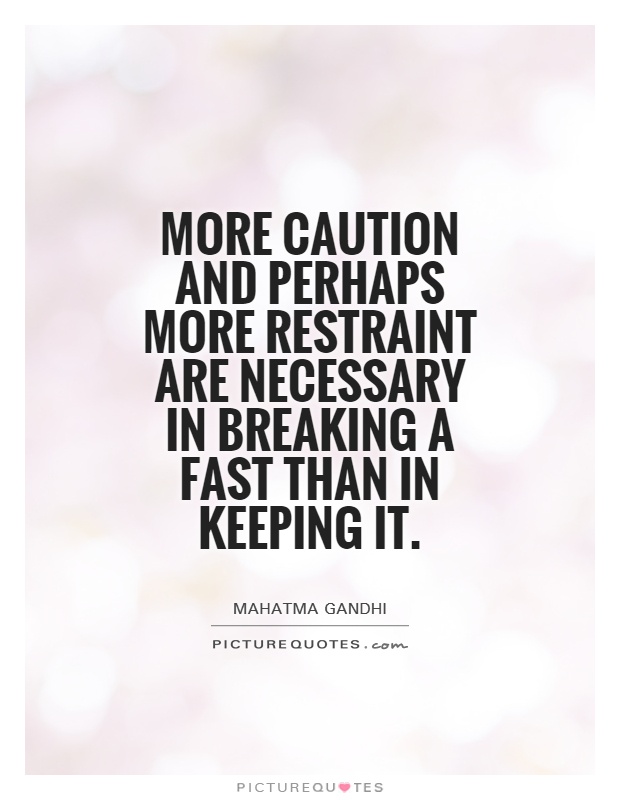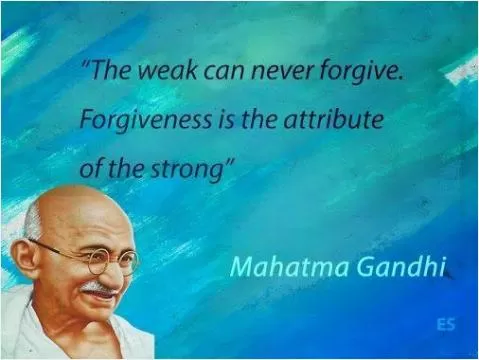More caution and perhaps more restraint are necessary in breaking a fast than in keeping it

More caution and perhaps more restraint are necessary in breaking a fast than in keeping it
Mahatma Gandhi, the revered leader of the Indian independence movement, was known for his strong beliefs in nonviolence, self-discipline, and spiritual purity. One of the practices he was most famous for was fasting as a form of protest or self-purification. Gandhi believed that fasting was a powerful tool for self-control and spiritual growth, and he often used it as a means of protest against injustice or as a way to cleanse his body and mind.In the context of Gandhi's philosophy, the quote "More caution and perhaps more restraint are necessary in breaking a fast than in keeping it" takes on a deeper meaning. Gandhi believed that the act of fasting was a sacred and solemn practice that required careful consideration and discipline. He often emphasized the importance of breaking a fast slowly and mindfully, in order to avoid any harm to the body or spirit.
For Gandhi, fasting was not just a physical act of abstaining from food, but a spiritual practice that required a deep sense of self-awareness and restraint. He believed that breaking a fast too quickly or recklessly could have negative consequences for both the individual and the cause they were fasting for. Gandhi often spoke about the importance of maintaining a sense of balance and moderation in all aspects of life, including fasting.












 Friendship Quotes
Friendship Quotes Love Quotes
Love Quotes Life Quotes
Life Quotes Funny Quotes
Funny Quotes Motivational Quotes
Motivational Quotes Inspirational Quotes
Inspirational Quotes